HVAC Companies London Colney
Find top Air Conditioning Services in London Colney
Get up to 3 Air Conditioning Services quotes for your project today! Compare profiles, reviews, accreditations, portfolio, etc... and choose the best offer.
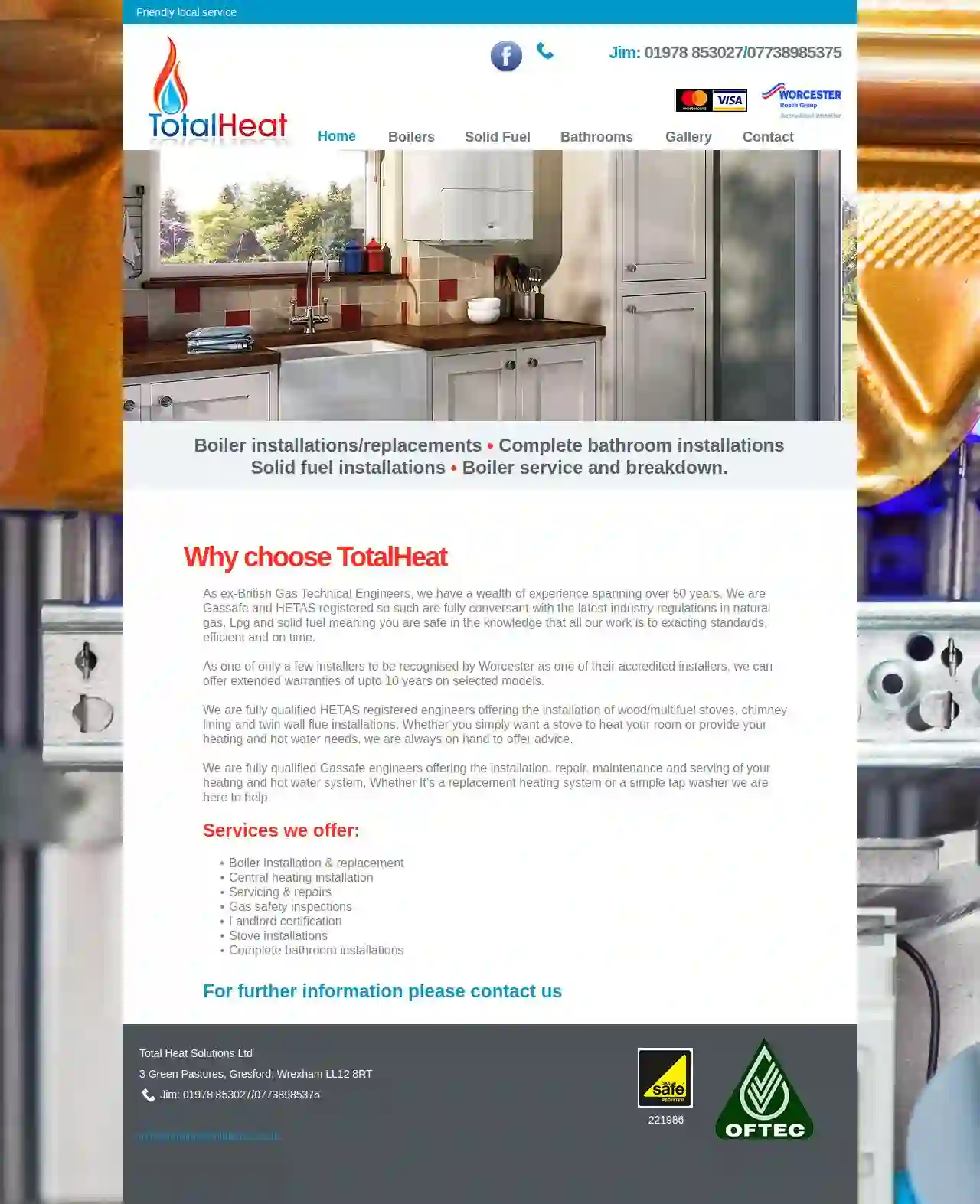
Totalheat Solutions Ltd
4.511 reviews3 Green Pastures, Gresford, LL12 8RT, GBAs ex-British Gas Technical Engineers, we have a wealth of experience spanning over 50 years. We are Gassafe and HETAS registered so such are fully conversant with the latest industry regulations in natural gas, Lpg and solid fuel meaning you are safe in the knowledge that all our work is to exacting standards, efficient and on time.As one of only a few installers to be recognised by Worcester as one of their accredited installers, we can offer extended warranties of upto 10 years on selected models.We are fully qualified HETAS registered engineers offering the installation of wood/multifuel stoves, chimney lining and twin wall flue installations. Whether you simply want a stove to heat your room or provide your heating and hot water needs, we are always on hand to offer advice.We are fully qualified Gassafe engineers offering the installation, repair, maintenance and serving of your heating and hot water system, Whether It’s a replacement heating system or a simple tap washer we are here to help.
- Services
- Why Us?
- Accreditations
- Our Team
- Testimonials
- Gallery
Get Quote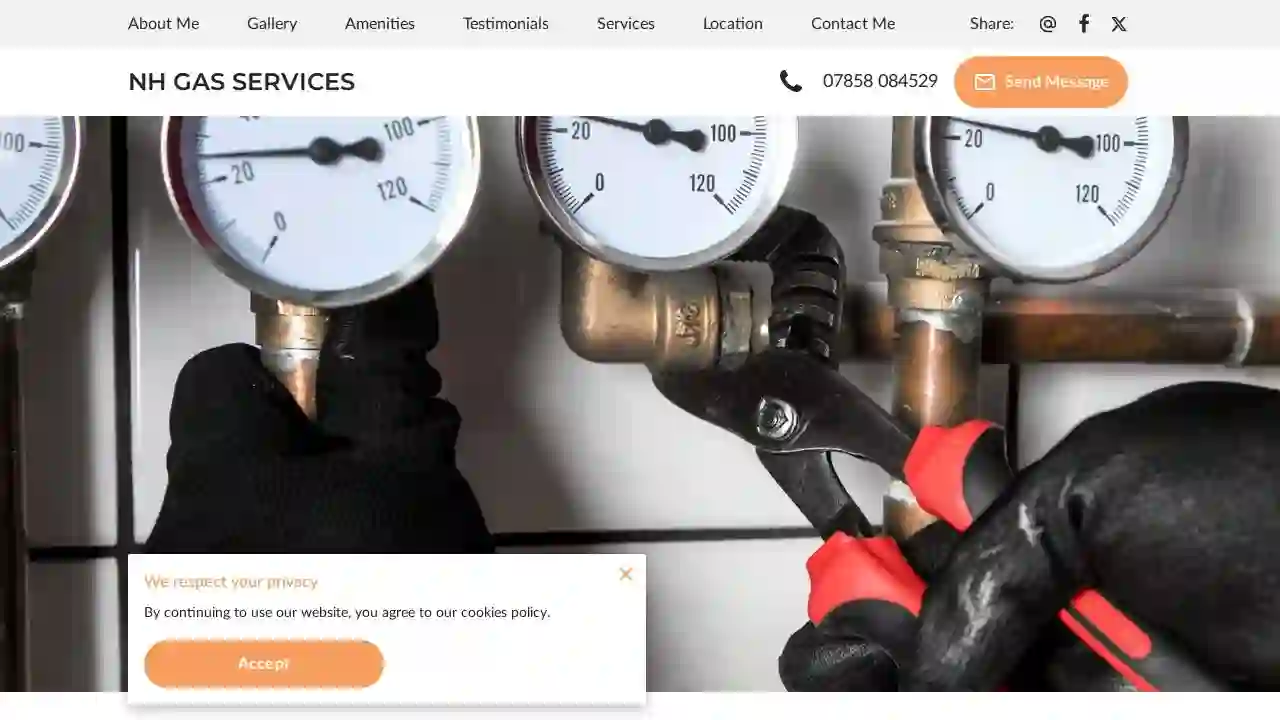
NH GAS SERVICES
59 reviews6 Kingpin Square, Stevenage, SG1 5BU, GBAt NH GAS SERVICES, our team of experienced boiler repair specialists and central heating engineers are available to offer a wide range of services to suit all manner of your building heating requirements. We believe the true hallmark of a great gas and heating engineer is to complete every job to the highest level of quality possible. We happily serve customers across Stevenage. Request a booking or contact us now on +447858084529 - we will be happy to talk you through the variety of services available. Our experienced gas heating and plumbing engineers approach every project with a high level commitment and professionalism, and we’re proud of our reputation for skilled workmanship and attention to detail. Our dedicated team is courteous, approachable and fully up to date with the latest regulations. Whether it's repairs or the installation of a new device, we can handle it all. We offer our customers peace of mind and that personal touch of service with continued contact throughout each job's progress. We install new boilers with warranties as best practice and help customers avoid paying out hundreds of pounds each year on insurances for boiler repairs.
- Services
- Why Us?
- Testimonials
Get Quote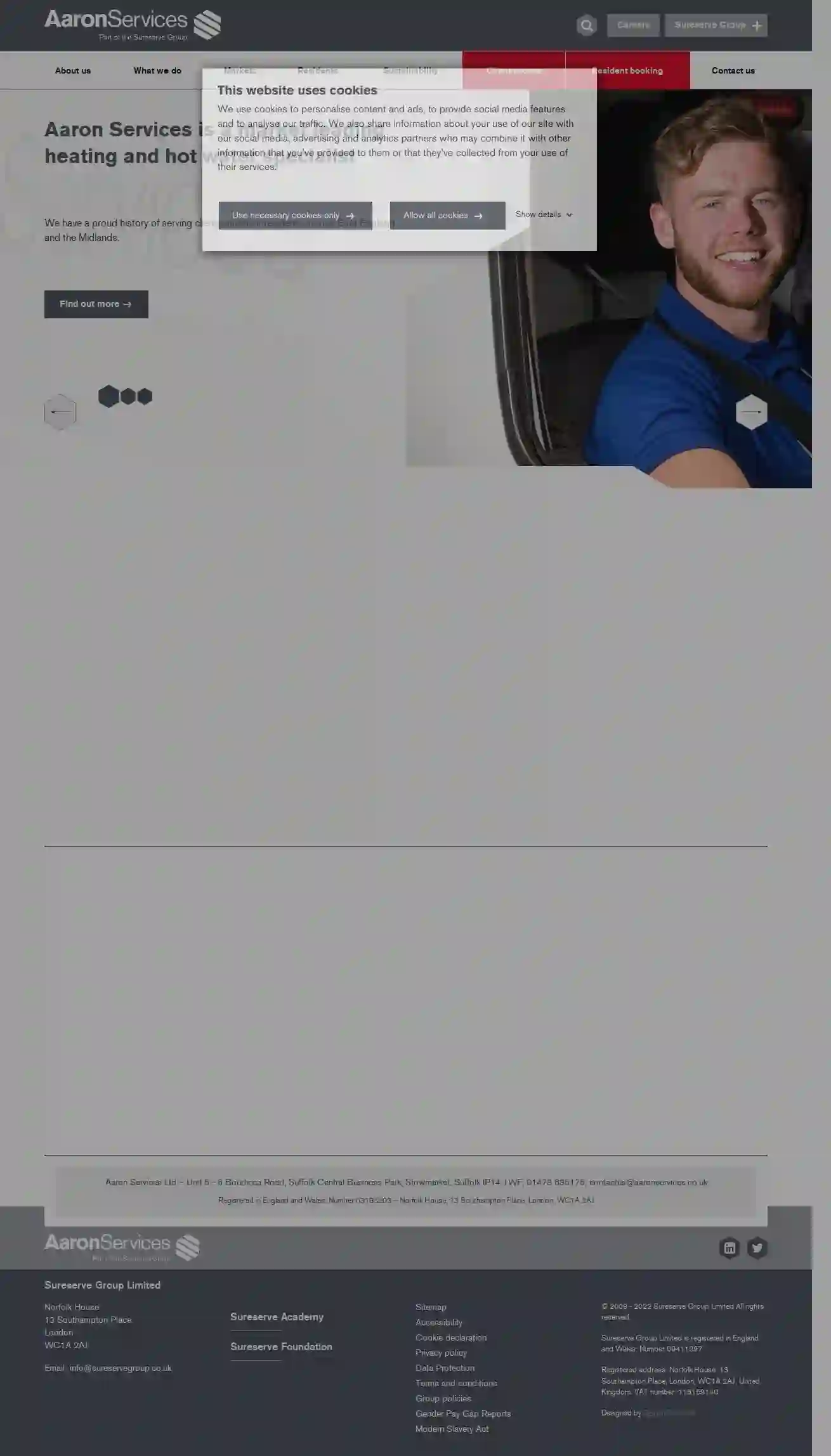
Aaron Services Ltd
2.417 reviews13 Southampton Place, Norfolk House, London, W1A 2AJ, GBAaron Services is a market leading heating and hot water specialist, serving clients and their residents across East England and the Midlands. Formed in 1996, we have grown into one of the industry’s leading businesses providing multi fuel heating and hot water specialist services. We pride ourselves on both the calibre of our people and their commitment to the vision of the business. People are at the heart of what we do and relationships are all important. That is why we work hard to build collaborative partnerships with our clients, their customers, manufacturers, suppliers and employees. Accreditations and memberships give our customers, partners, employees and the communities we work in confidence that we’ll do our jobs to industry leading standards. With over 35 years of successful delivery experience in the domestic and commercial markets you can trust Aaron Services with all your heating needs. We have built a business that is focused on delivering comprehensive and high quality heating and hot water services in a range of markets.
- Services
- Why Us?
- Gallery
Get Quote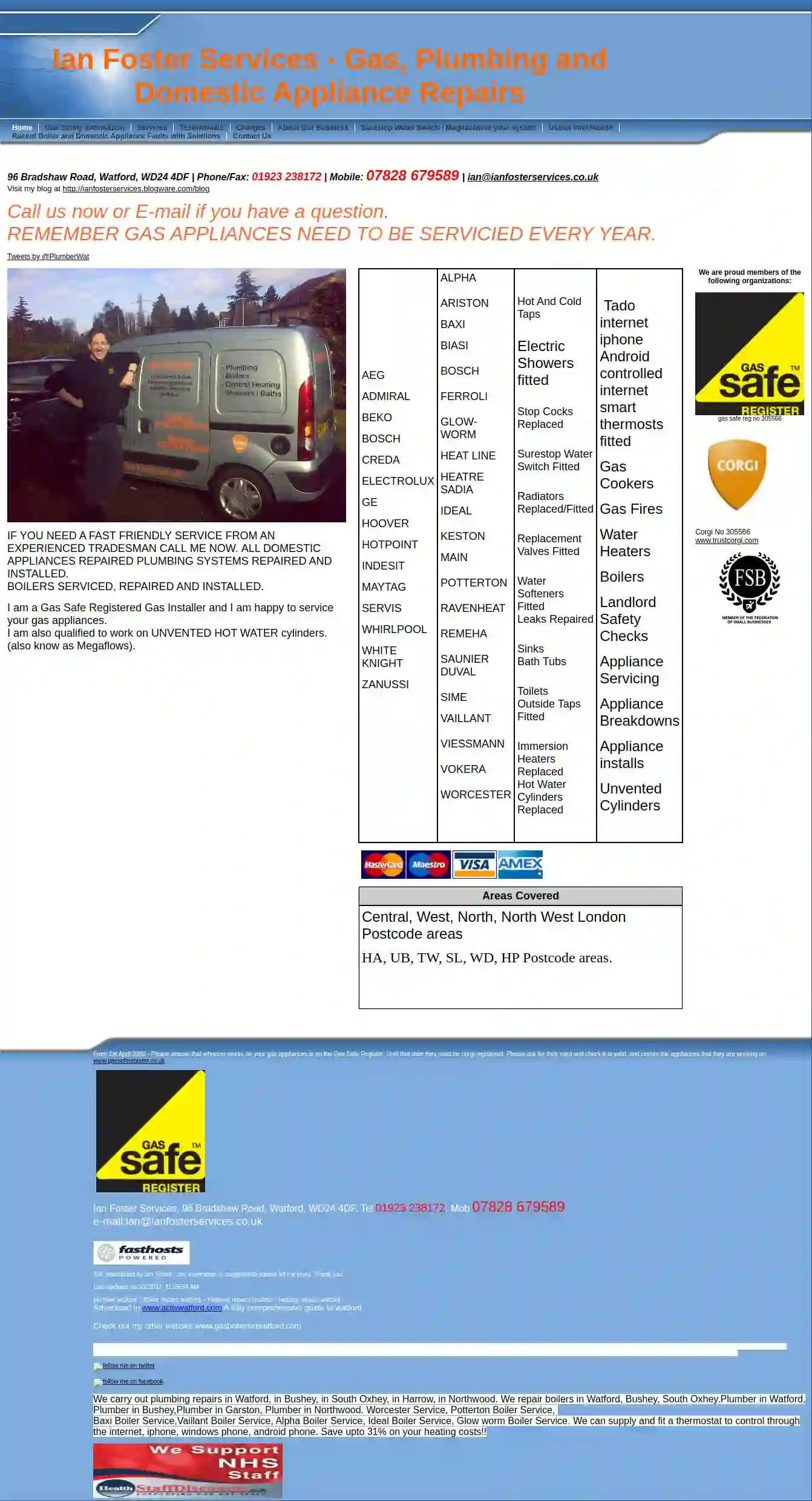
Ian Foster Services
51 reviews96 Bradshaw Road, Watford, WD24 4DF, GBIan Foster Services is a Gas Safe registered business established in 2007 by Ian Foster, who has over 20 years of experience in the industry. Ian previously worked for Hotpoint as an engineer, senior engineer, team leader, and field supervisor. He holds a City & Guilds 6129 Qualification in Plumbing and is ACS Gas Exam certified. The company is committed to providing excellent customer service, tailoring their services to meet individual customer needs, and offering honest and reliable work. Ian Foster Services covers areas in and around London, including Watford, Bushey, South Oxhey, Harrow, and Northwood.
- Services
- Why Us?
- Accreditations
- Our Team
- Gallery
Get Quote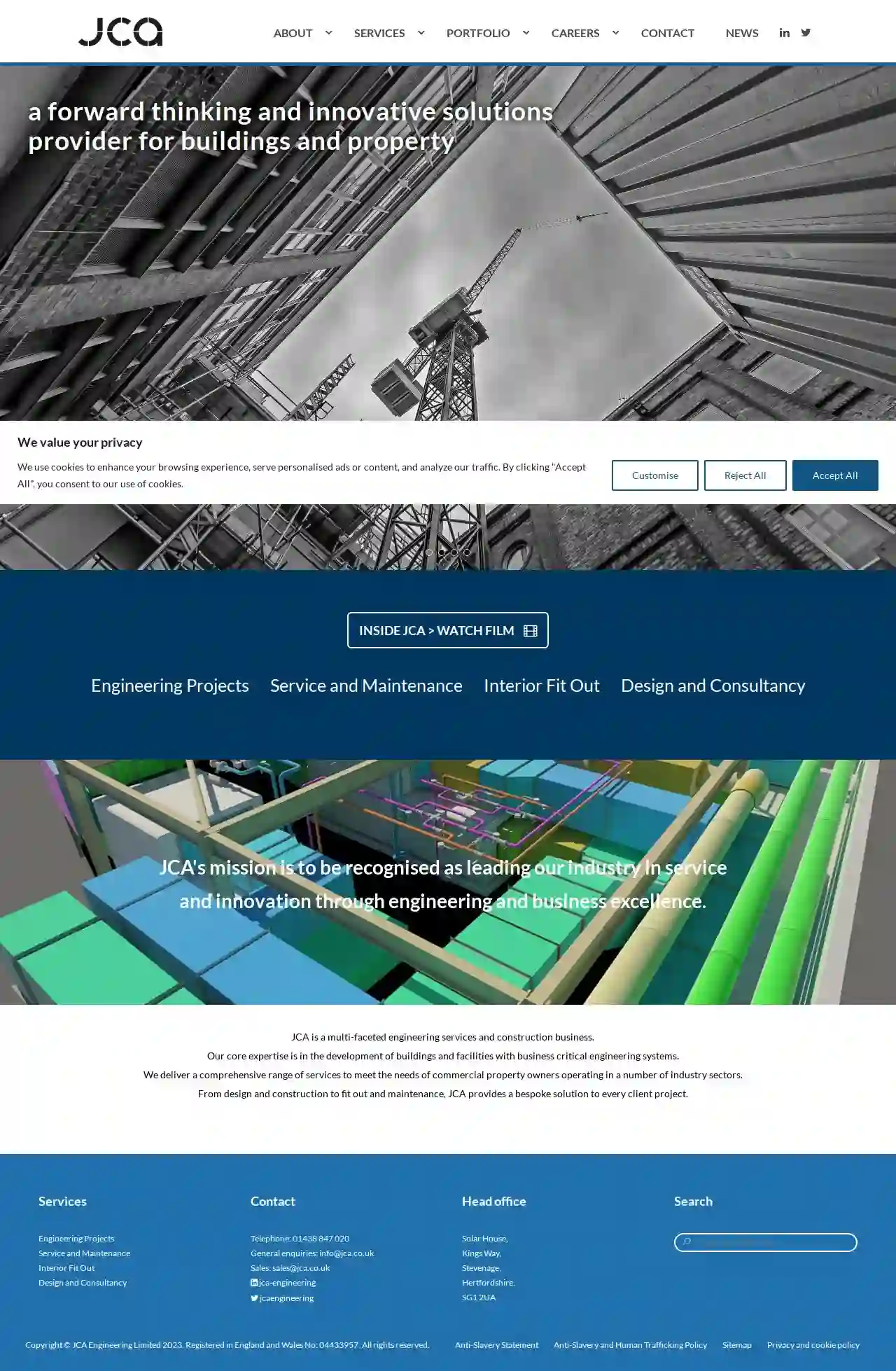
JCA Engineering
49 reviewsKings Way, Solar House, Stevenage, SG1 2UA, GBJCA is a multi-faceted engineering services and construction business. Our core expertise is in the development of buildings and facilities with business critical engineering systems. We deliver a comprehensive range of services to meet the needs of commercial property owners operating in a number of industry sectors. From design and construction to fit out and maintenance, JCA provides a bespoke solution to every client project. JCA's mission is to be recognised as leading our industry in service and innovation through engineering and business excellence.
- Services
- Why Us?
- Gallery
Get Quote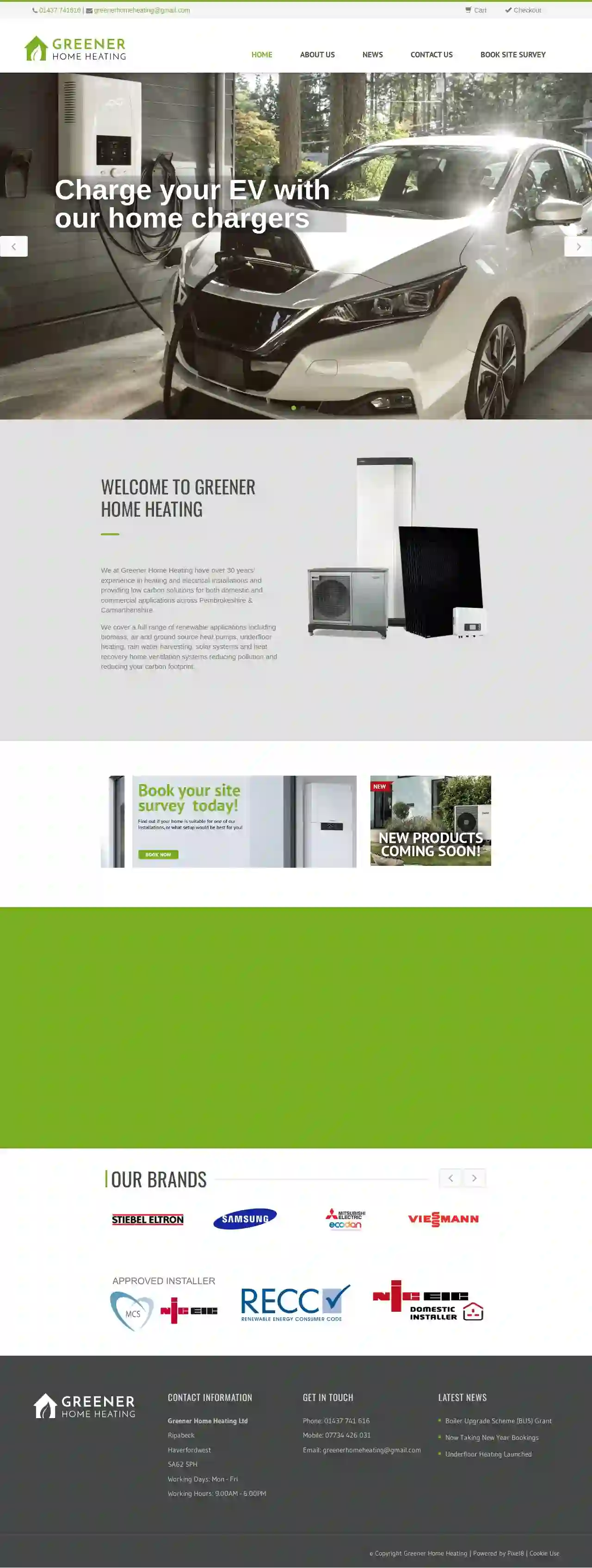
Greener Home Heating
51 reviewsHaverfordwest, Ripabeck, SA62 5PH, GBWelcome to Greener Home Heating, Pembrokeshire's number one provider of eco-friendly heating solutions. With over 30 years' experience in heating and electrical installations, we provide low carbon solutions for both domestic and commercial applications across Pembrokeshire & Carmarthenshire. We cover a full range of renewable applications including biomass, air and ground source heat pumps, underfloor heating, rain water harvesting, solar systems and heat recovery home ventilation systems reducing pollution and reducing your carbon footprint.
- Services
- Why Us?
- Our Team
- Testimonials
- Gallery
Get Quote
Space Heating ltd
Space House, The Avenue, AL6 0PW, GBWelcome to Space Heating Ltd, a family-run business covering all domestic and corporate plumbing and heating requirements. We are based in Hertfordshire and cover all the surrounding areas, including London. No job is too big or small for us, from complete heating installations, air source heat pumps and full bathroom fittings to leaks, blockages, or boiler servicing. We work for landlords or homeowners right through to large housing associations. We are fully qualified, insured, Gas Safe registered, and fully MCS Certified to provide additional government funding for air source heat pumps. We always strive to give our customers the best service. Space Heating offers its customers a 24 hour, 7 days a week emergency service. We always have an engineer on call ready to tackle those out of hours emergencies. Boiler breakdowns – We carry a selection of parts for the most common boilers so we can do our best to get your boiler up and running again during the cold weather. Leaks – whether it’s a burst pipe or you’ve put a nail through a pipe whilst doing some DIY we have someone on call who can fix it.
- Services
- Why Us?
- Accreditations
- Testimonials
- Gallery
Get Quote
Simple Climate Solutions
515 reviews24 Watercress Road, Cheshunt, EN7 6XN, GBSimple Climate Solutions is a Hertfordshire-based Air Conditioning Contractor specialising in Residential Air Conditioning installation, Commercial Air Conditioning installation and Air Conditioning Service & Maintenance. Whether you are a homeowner seeking control over the temperature in your bedroom with a better night’s sleep, or a Business owner looking to make your office space more comfortable, plus boost the productivity of your employees contact us today to book a free on-site survey. Simple Climate Solutions provide routine service plans for your existing Air Conditioning units to maximise efficiency & longevity. Every system we install is manufactured by the best brands on the market & all come with warranty up to 7 years. All of our engineers are F-Gas registered & accredited by Refcom. We guarantee the highest levels of professionalism with all our services and strive for excellence in customer service by always putting our customers first. Provide the ultimate climate control for your property, staff, and customers, contact us today!
- Services
- Why Us?
- Accreditations
- Our Team
- Testimonials
- Gallery
Get Quote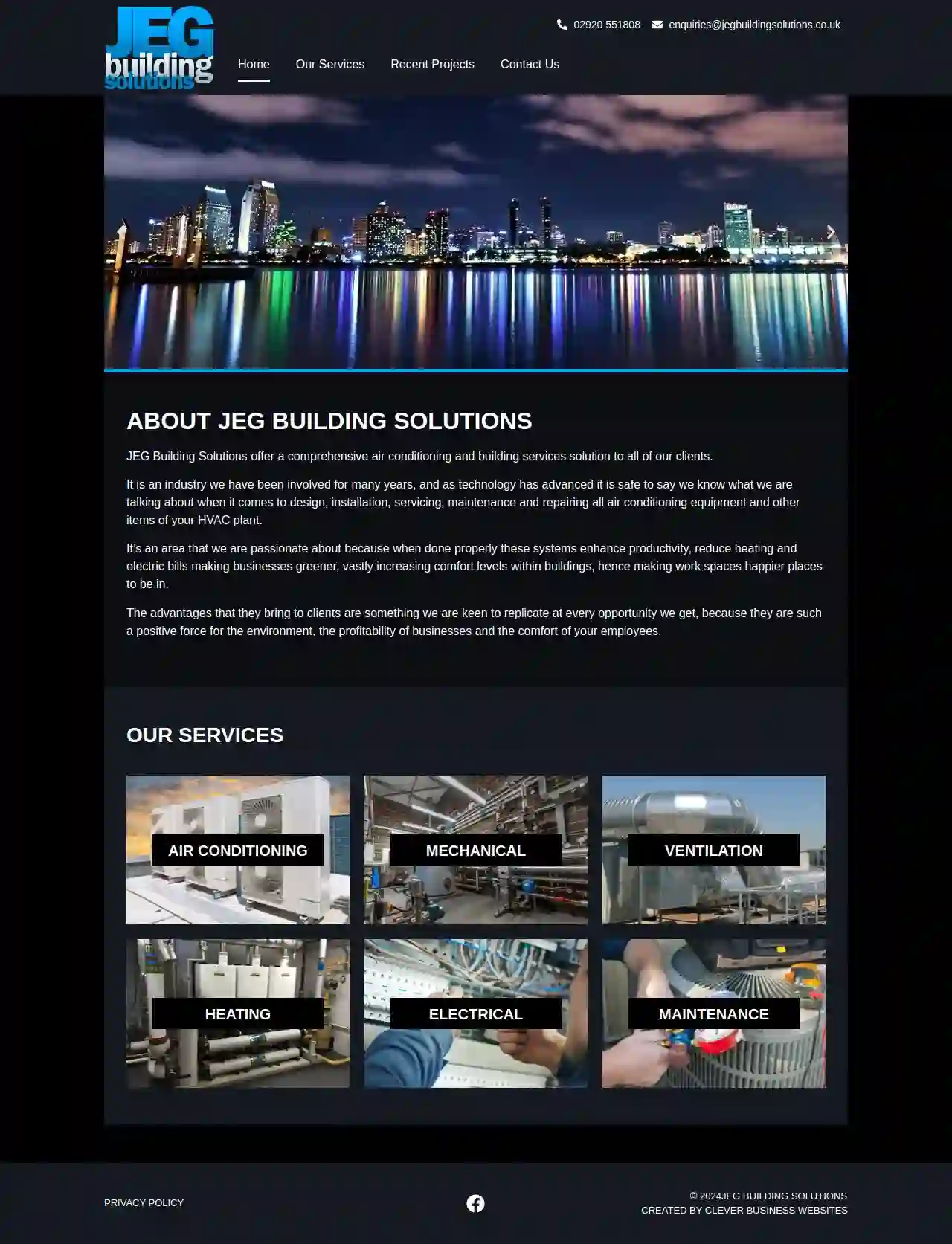
JEG Building Solutions Ltd.
Ware, GBJEG Building Solutions offer a comprehensive air conditioning and building services solution to all of our clients. It is an industry we have been involved for many years, and as technology has advanced it is safe to say we know what we are talking about when it comes to design, installation, servicing, maintenance and repairing all air conditioning equipment and other items of your HVAC plant. It’s an area that we are passionate about because when done properly these systems enhance productivity, reduce heating and electric bills making businesses greener, vastly increasing comfort levels within buildings, hence making work spaces happier places to be in. The advantages that they bring to clients are something we are keen to replicate at every opportunity we get, because they are such a positive force for the environment, the profitability of businesses and the comfort of your employees.
- Services
- Why Us?
- Gallery
Get Quote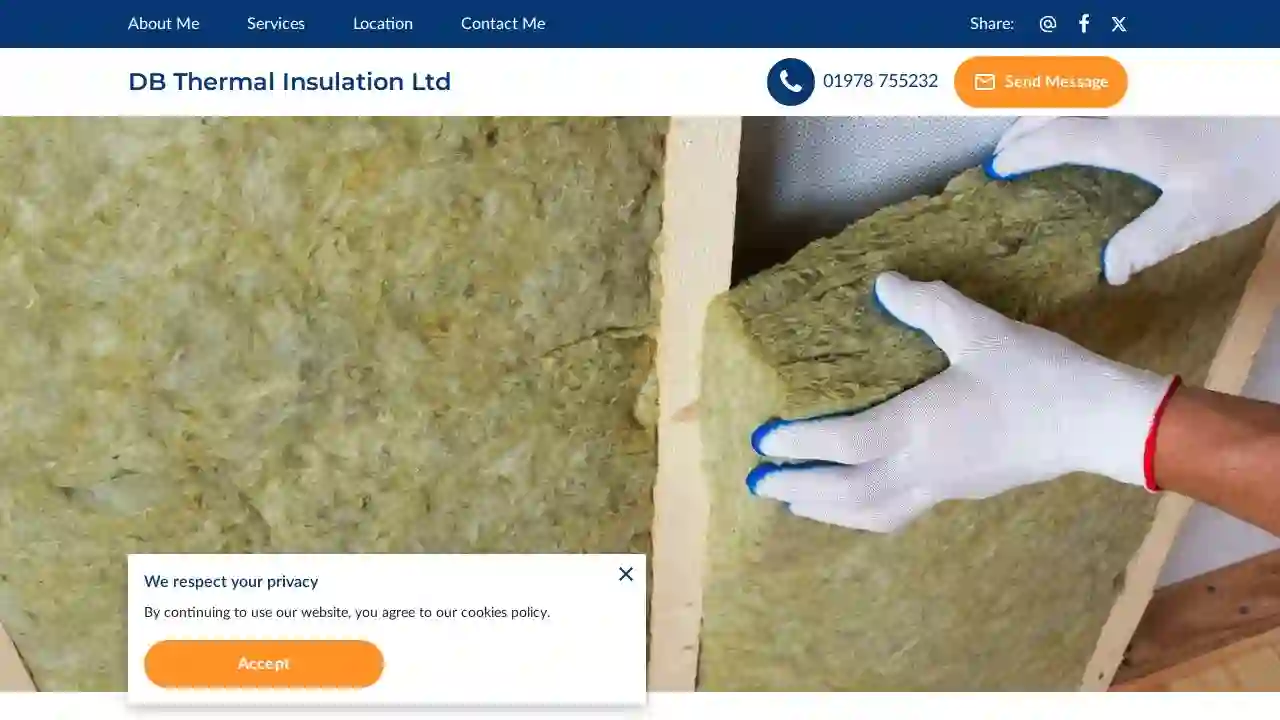
DB Thermal Insulation Ltd
The Old Bakery, Clayton Road, Wrexham, LL11 6BL, GBDB Thermal Insulation Ltd is a leading insulation provider serving homes throughout Wrexham and beyond. We understand that solid, high-quality insulation is crucial for keeping your home warm and reducing heating bills. Our team of experienced contractors is dedicated to providing top-notch insulation services, ensuring your home is as energy-efficient as possible. We offer a comprehensive range of insulation solutions, including cavity wall insulation, loft insulation, and more. We also specialize in brick repointing and the removal of old or damaged insulation. At DB Thermal Insulation Ltd, we pride ourselves on using only the highest quality insulation products available, ensuring safety and maximum effectiveness for your property. Our commitment to quality and customer satisfaction has earned us a reputation as the best insulation contractor in Wrexham. We are confident that you will be delighted with our services. Contact us today for a free quote and let us help you create a warmer, more energy-efficient home.
- Services
- Why Us?
Get Quote
Over 12,692+ HVAC Companies on our platform
Our HVAC companies operate in London Colney & beyond!
HVACCompaniesHub has curated and vetted the Best HVAC Businesses arround London Colney. Find a reliable pro today.
Frequently Asked Questions About HVAC Companies
- What is the source of the problem? Get a clear explanation of the issue and what caused it.
- What are my repair options? Discuss different repair solutions, if applicable, and their associated costs.
- Are there any preventative measures I can take? Find out if there are steps you can take to prevent future problems.
- Do you recommend a repair or replacement? If repairs are extensive or the system is old, consider replacement.
- What are the warranties on parts and labor? Understand the warranties before agreeing to any repairs.
- Do you have any customer reviews or testimonials I can check? Reputable HVAC technicians are often happy to provide references or direct you to customer reviews.
- Frequent Repairs: If your system requires repairs often, it may be more cost-effective to replace it.
- Age of System: HVAC systems typically last 15-20 years. If your system is nearing or beyond that age, it's likely less efficient and more prone to breakdowns.
- Increased Energy Bills: A significant rise in energy bills could indicate your system is losing efficiency and needs replacement.
- Uneven Temperatures: If some rooms are too hot or too cold, it could be a sign of an inefficient HVAC system.
- Poor Indoor Air Quality: If you're experiencing allergies, dust, or other indoor air quality issues, a new HVAC system with better filtration could help.
- Strange Noises or Smells: Unusual noises or foul odors emanating from your HVAC system could signal the need for a new HVAC system.
What is a SEER rating, and why is it important?
What should I ask an HVAC technician during a service call?
What is the best temperature to set my thermostat in summer?
What are the signs that I need a new HVAC system?
What is a SEER rating, and why is it important?
What should I ask an HVAC technician during a service call?
- What is the source of the problem? Get a clear explanation of the issue and what caused it.
- What are my repair options? Discuss different repair solutions, if applicable, and their associated costs.
- Are there any preventative measures I can take? Find out if there are steps you can take to prevent future problems.
- Do you recommend a repair or replacement? If repairs are extensive or the system is old, consider replacement.
- What are the warranties on parts and labor? Understand the warranties before agreeing to any repairs.
- Do you have any customer reviews or testimonials I can check? Reputable HVAC technicians are often happy to provide references or direct you to customer reviews.
What is the best temperature to set my thermostat in summer?
What are the signs that I need a new HVAC system?
- Frequent Repairs: If your system requires repairs frequently, it may be more cost-effective to replace it.
- Age of System: HVAC systems typically last 15-20 years. If your system is nearing or beyond that age, it's likely less efficient and more prone to breakdowns.
- Increased Energy Bills: A significant rise in energy bills could indicate your system is losing efficiency and needs replacement.
- Uneven Temperatures: If some rooms are too hot or too cold, it could be a sign of an inefficient HVAC system.
- Poor Indoor Air Quality: If you're experiencing allergies, dust, or other indoor air quality issues, a new HVAC system with better filtration could help.
- Strange Noises or Smells: Unusual noises or foul odors emanating from your HVAC system could signal the need for a new HVAC system.